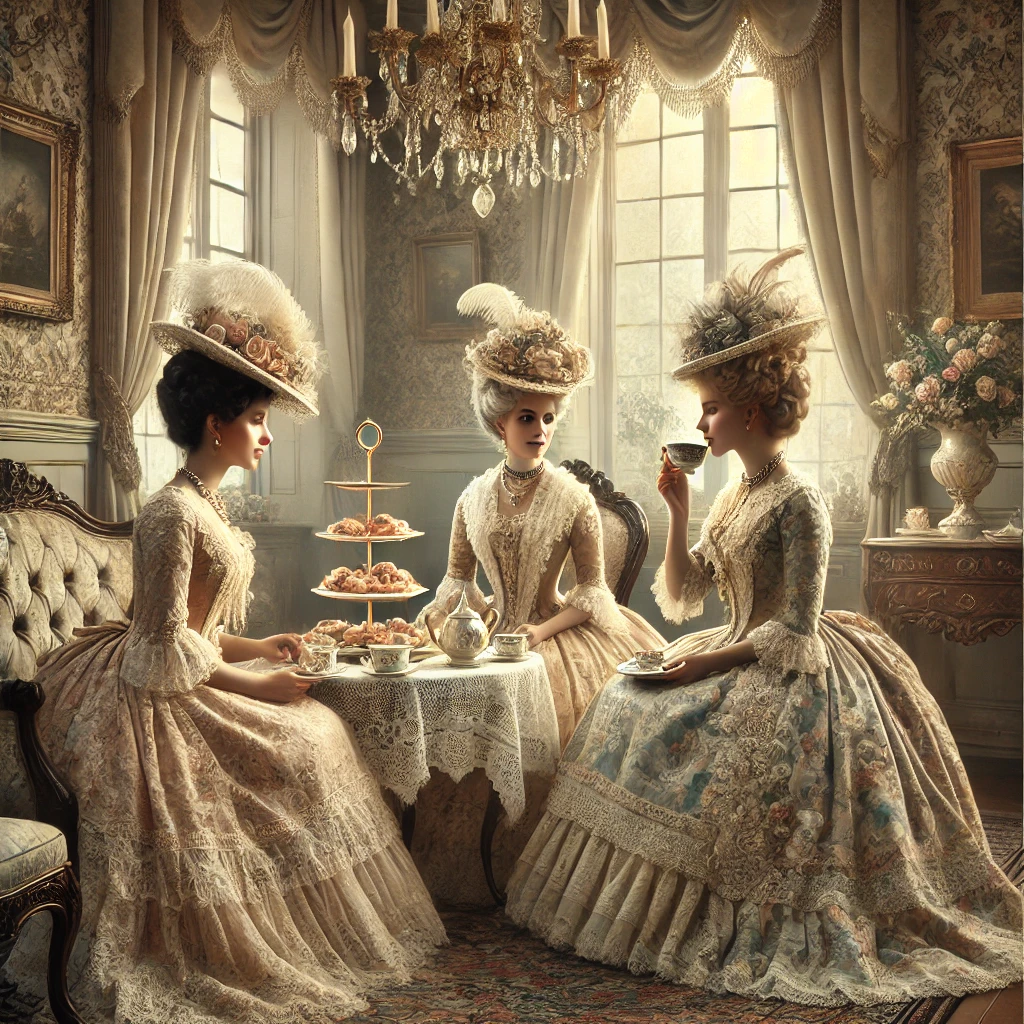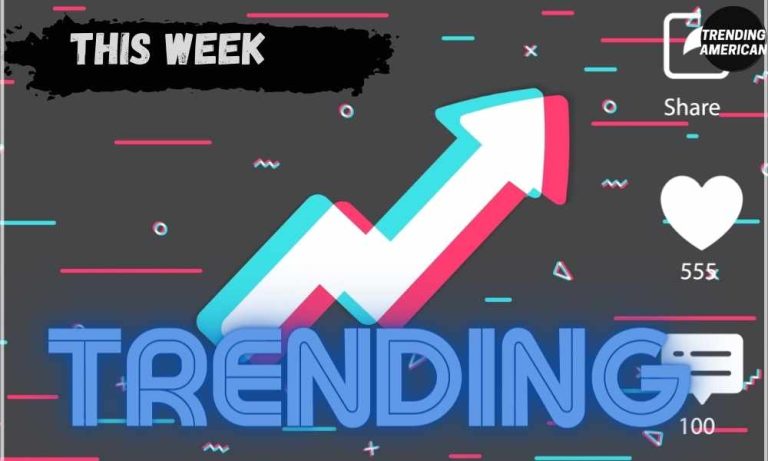Arfarfan’arf Alert! 86 Outrageous Victorian Slang Terms You’ll Want to Steal
The Victorian era wasn’t just about corsets, tea parties, and rigid manners—it also had some of the funniest, quirkiest slang you’ve ever heard! Here’s a delightful dive into these gems of language, complete with their meanings, occasions, and who used them. Get ready to chuckle as you meet your new favorite words!
1. Chuckaboo
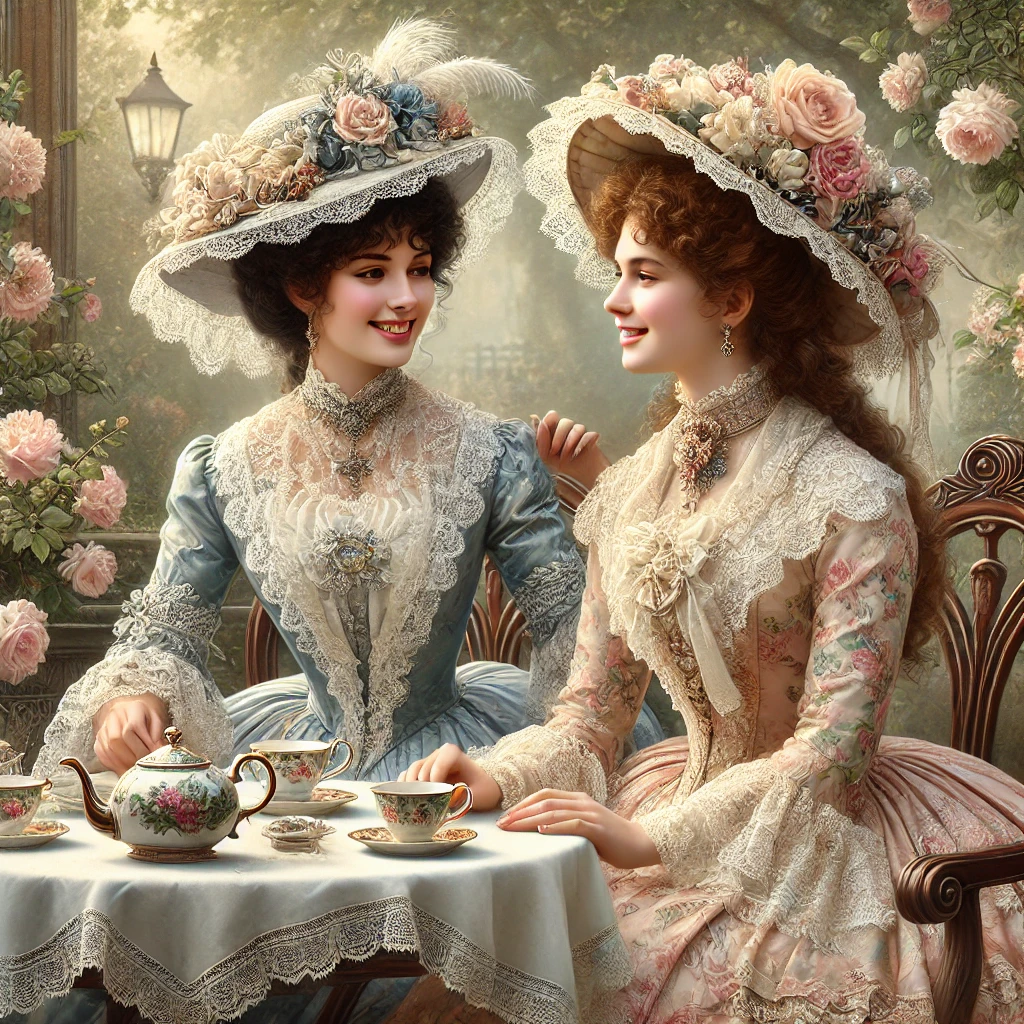
If someone in the Victorian era called you their chuckaboo, you should feel honored—it means you’re a close friend! This term was commonly used among pals in casual chats. Imagine calling your BFF a “chuckaboo” instead of “bestie.” Doesn’t it have a charming ring to it?
2. Shooting the Cat
This colorful phrase was used when someone vomited, usually after one too many drinks. Partygoers and sailors were particularly known to “shoot the cat.” It’s graphic, sure, but hilariously memorable.
3. Lobster Trick
Ever been duped by a scoundrel? That’s exactly what a lobster trick was—a term for cheats and con artists. Used mostly by the criminal underworld, it’s a reminder that shady folks have been around forever.
4. Got the Morbs
Feeling down? You’d say you’ve “got the morbs.” This slang for temporary melancholy was used by everyday Victorians, proving they had a flair for the dramatic even when they were blue.
5. Bang Up to the Elephant
This fancy phrase meant something was absolutely perfect. Whether it was a stylish outfit or a well-done task, calling it “bang up to the elephant” made it clear it was top-notch. Fashionable folks loved this one!
6. Arfarfan’arf
Here’s a fun one for the pub-goers. An arfarfan’arf was someone who was half-and-half drunk—not tipsy, not wasted, just in that in-between wobble zone. Perfect for describing your mate after one pint too many.
7. Clapperclaw
To clapperclaw was to scold someone or give them a good tongue-lashing. It’s a word that fits the sound of a good, sharp argument. Mothers and bosses likely used this one on unruly children or employees.
8. Gigglemug
Ever met someone who is always smiling? They’re a gigglemug! This was a term of affection or mockery for cheerful folks who couldn’t keep a straight face.
9. Damfino
Short for “damned if I know,” damfino was a quick and cheeky way to say you’re clueless. It was common among everyone, from working-class folks to high society when stumped by a tricky question.
10. Mutton Shunter
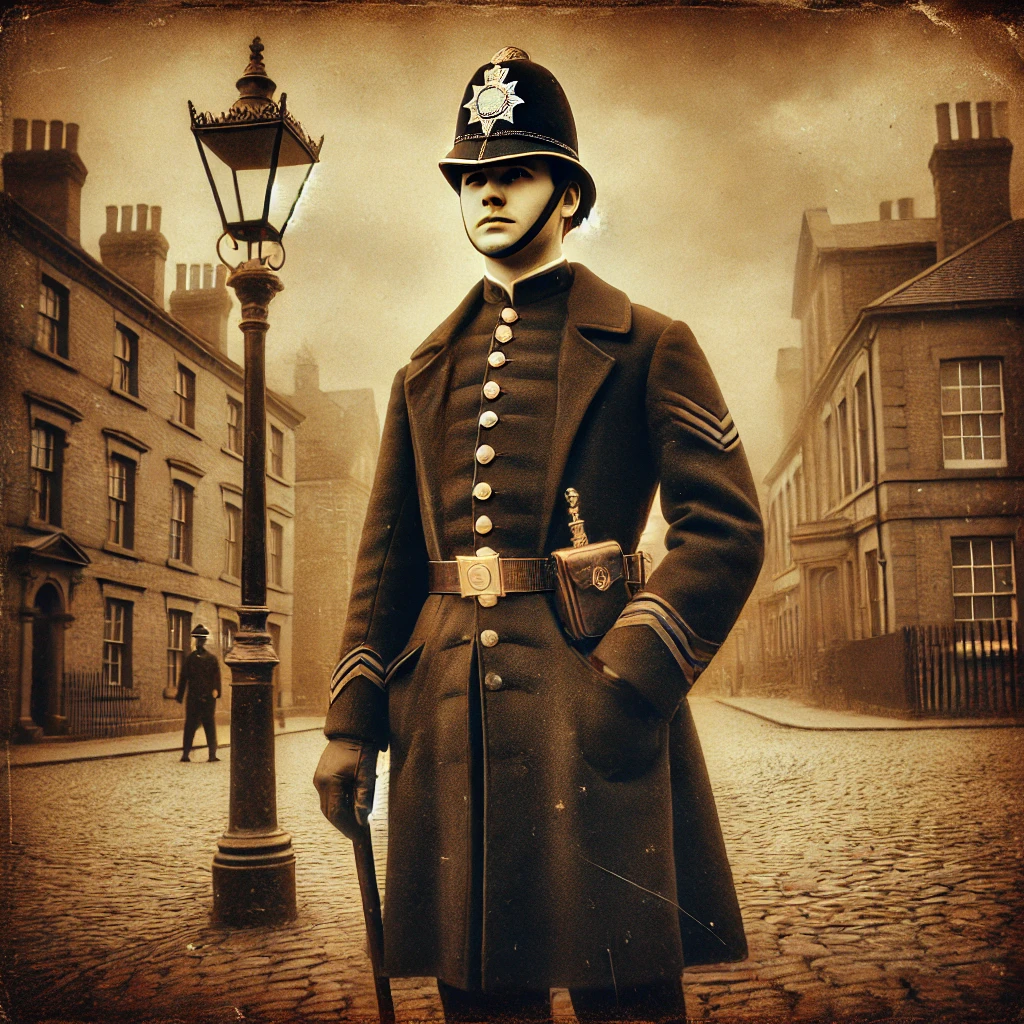
This funny-sounding term was a slightly rude nickname for a police officer, likely coined by criminals. “Mutton” referred to sheep, suggesting a shepherd-like role in controlling the public.
11. Bags o’ Mystery
Sausages were humorously called bags o’ mystery because no one really knew what went into them. A hit with the working class, it’s still a mystery why we keep eating them!
12. Tight as a Drum
A stingy person would be labeled tight as a drum. It was used widely by people frustrated with someone unwilling to share their “wedge” (money).
13. Skilamalink
If something or someone seemed shady or suspicious, they were skilamalink. This was a favorite among criminals, but it was also used by anyone describing questionable behavior.
14. Butter Upon Bacon
Victorians used this expression to describe something overly lavish or excessive. Adding butter to bacon was considered unnecessary—extravagance at its finest!
15. Zounderkite
What’s the best way to call someone an idiot? In Victorian slang, it was zounderkite. This term was a funny insult for a fool, perfect for the playful banter of the time.
16. Cop a Mouse
Got a black eye? In Victorian slang, you’d “cop a mouse.” This vivid phrase likely came from the appearance of a swollen bruise resembling a mouse under the skin.
17. Nanty Narking
This charming term meant having a grand time. Whether it was a lively party or a joyful occasion, nanty narking summed up the fun beautifully.
18. Catch Fart
This hilarious term described a servant who followed their master or mistress so closely that they’d “catch a fart.” Used by the working class, it was cheeky humor at its best.
19. Quockerwodger
A quockerwodger was a puppet—or metaphorically, someone controlled by another person. Politicians might have earned this nickname from their critics!
20. Fly Rink
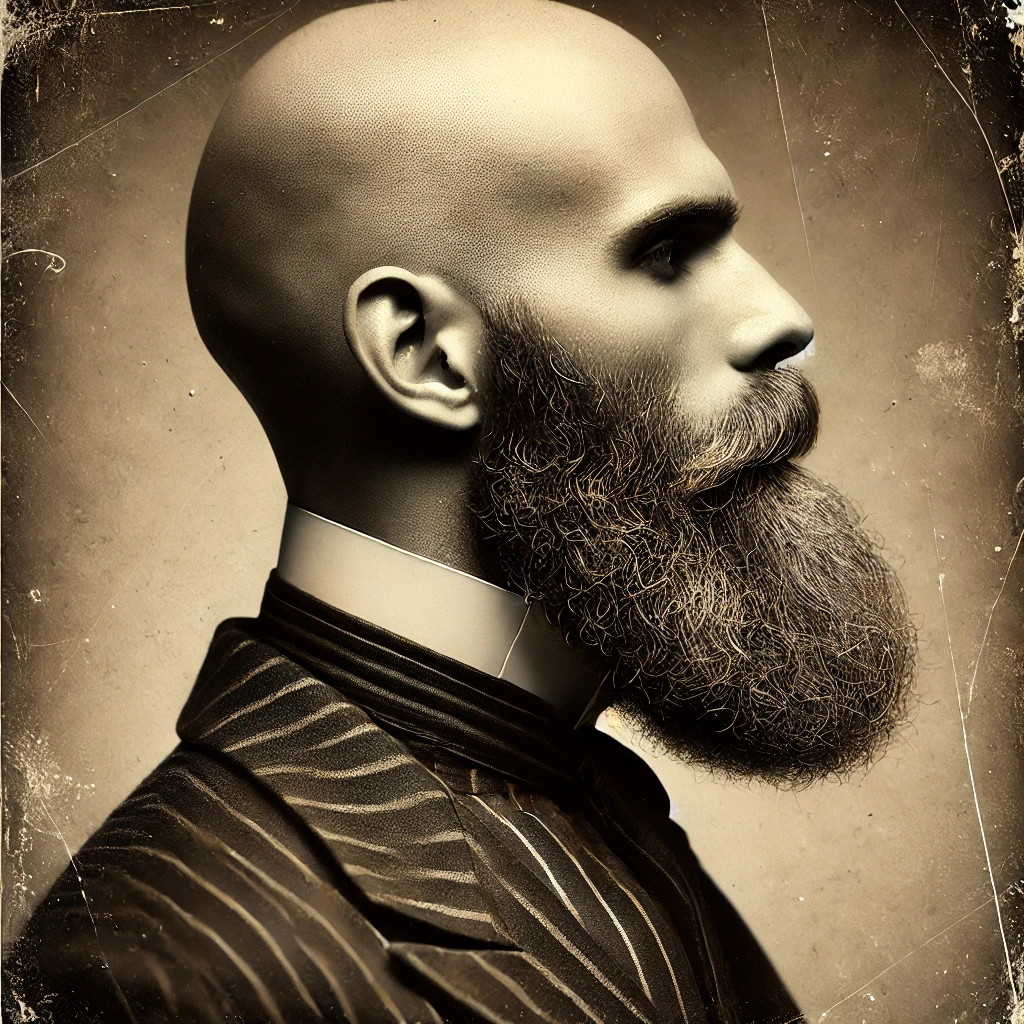
Bald men, beware: fly rink was a term for a shiny, bald head. It was a funny jab used in jest by those who enjoyed a good laugh at someone’s expense.
21. Carriwitchet
Ever heard a puzzling or absurd question? That’s a carriwitchet! It was used during lighthearted conversations to keep things entertaining.
22. Jammiest Bits of Jam
This delicious-sounding phrase was a compliment for someone stunningly attractive. Victorian gentlemen might have dropped this line to charm the ladies.
23. Tickle the Ivories
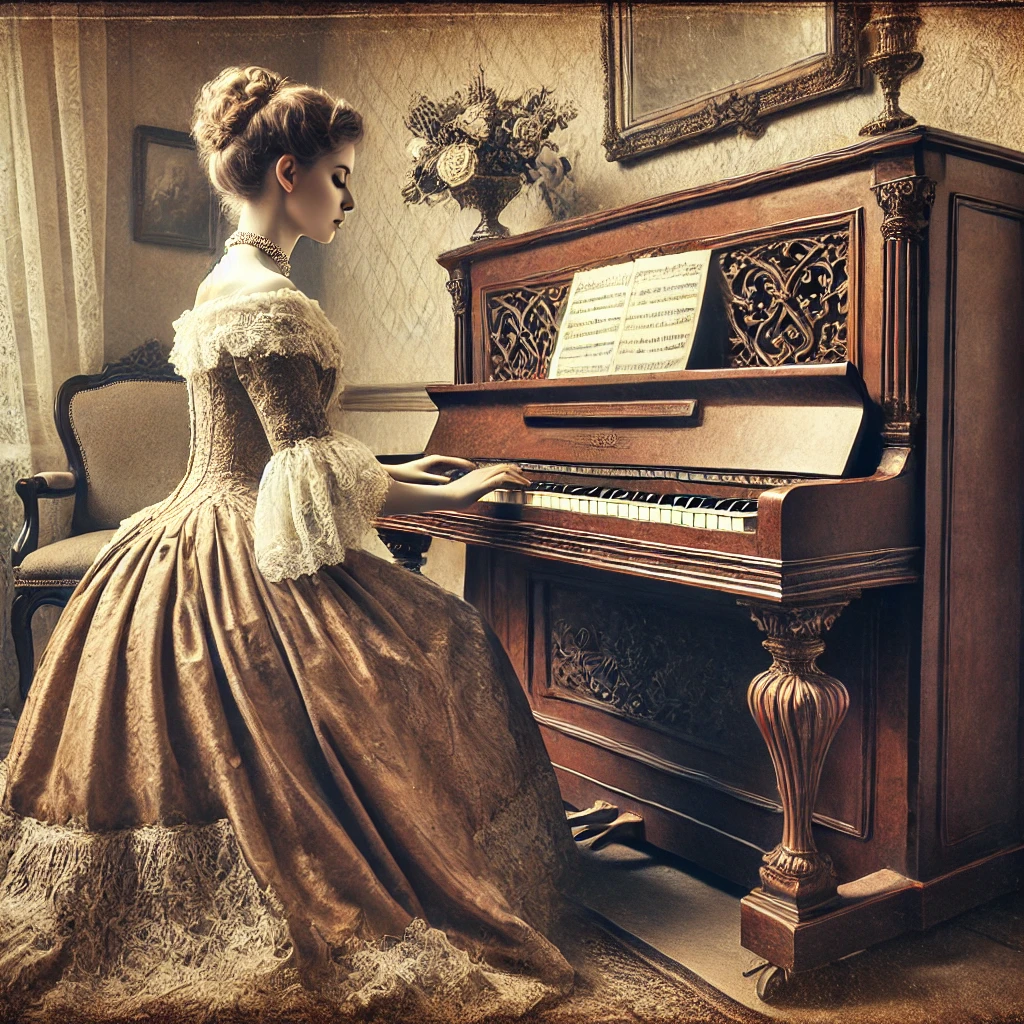
If you could play the piano, you’d “tickle the ivories.” It was a delightful term used by music enthusiasts across all classes.
24. Bow-Wow Mutton
This cheeky phrase was a humorous way to describe low-quality meat, often dog meat. Victorians had no problem adding some sass to their meals.
25. Knuckle Sandwich
Got into a fight? A knuckle sandwich was what you got—a punch to the face. This one was used by rough-and-tumble types and probably the last word you’d hear before a brawl.
26. Bone Box
A bone box was your mouth, and if someone told you to “shut your bone box,” they meant for you to stop talking. A cheeky way to call out a chatterbox!
27. Ugly Mug
An unattractive face was jokingly referred to as an “ugly mug.” This slang was used lightheartedly or in jest to poke fun at someone.
28. Saucebox
If you were a bit cheeky or overly bold, you’d be called a “saucebox.” This slang was often used for kids or mischievous adults who couldn’t hold back their sassy remarks.
29. Snitch
This timeless term for an informer originated in the Victorian era. It was popular in criminal circles, where tattletales weren’t exactly appreciated.
30. Ragamuffin
A “ragamuffin” was a scruffy, poorly dressed child. Often used by adults when describing street kids or mischievous youngsters, it was a mix of pity and humor rolled into one word.
31. Quid
The Victorian equivalent of saying “bucks,” “quid” referred to a pound sterling. It was a term used by everyone from merchants to gamblers handling their earnings.
32. Off One’s Chump
When someone was acting completely crazy or irrational, they were said to be “off one’s chump.” This was common slang across social classes for describing moments of madness.
33. Tantivy
“Tantivy” was a word for rushing at full speed. Whether someone was dashing through the streets on horseback or running late, this lively term perfectly captured their frantic energy.
34. Nap Hand
A “nap hand” referred to having a sure thing or a strong advantage, especially in card games. Gamblers and strategists loved throwing this phrase around.
35. Mug
This slang referred to a gullible or easily deceived person. Criminals often used it to describe their marks, while others used it jokingly to mock their naïve friends.
36. Ladybird
A “ladybird” was a term for a mistress or kept woman, often whispered about in scandalous tones among the upper classes. It carried a mix of intrigue and judgment.
37. Jam Jar
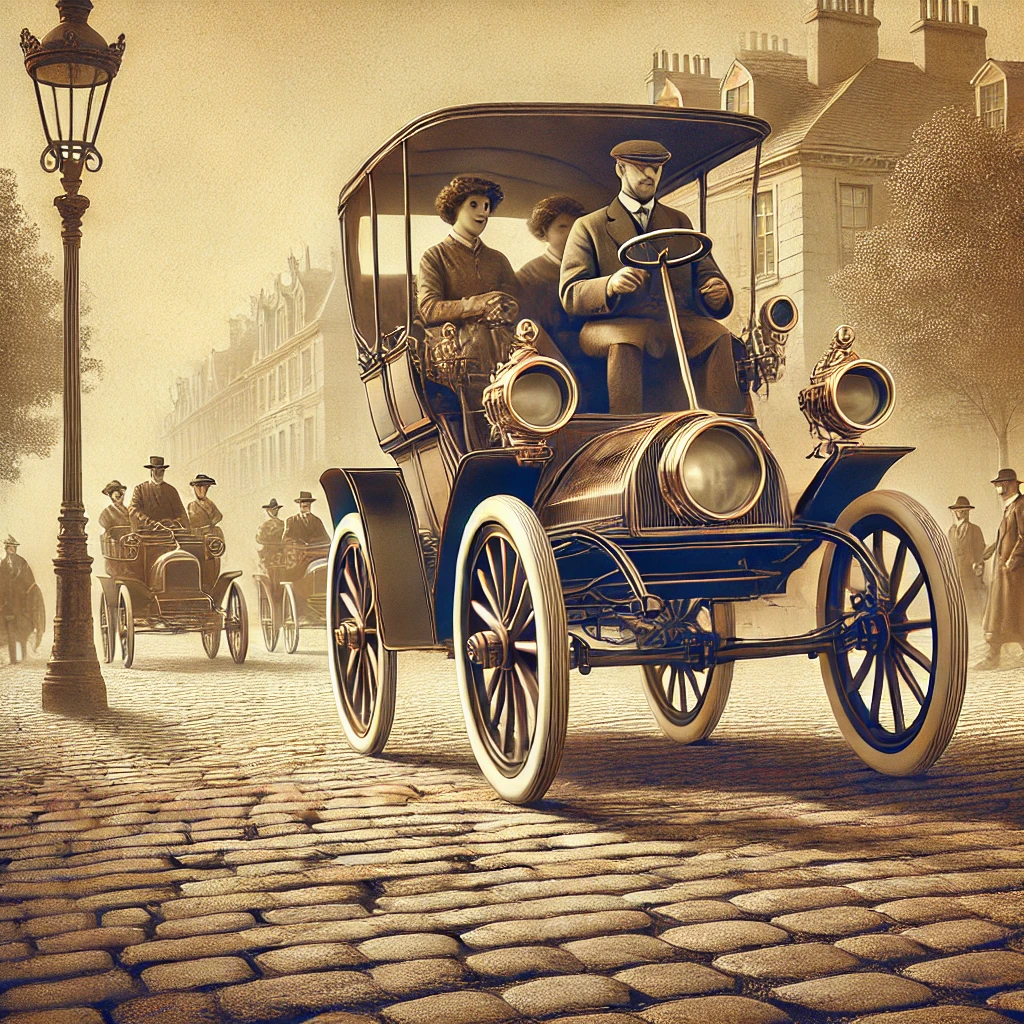
In Cockney rhyming slang, a “jam jar” referred to a car. While automobiles were a rarity in Victorian times, this term emerged as transportation evolved, and it became popular among Londoners.
38. Hedge-Creeper
A “hedge-creeper” was a vagrant or someone who lived by lurking around the edges of society. This term was often used disparagingly by townsfolk when referring to drifters or beggars.
39. Grub
Still used today, “grub” was a casual term for food. It was commonly used by the working class, who might ask, “What’s for grub tonight?” after a long day.
40. Draggle-Tailed
If someone’s appearance was messy or untidy, they’d be called “draggle-tailed.” This was often used to describe women whose skirts dragged through the mud or children with dirty clothes.
41. Daisy-Cutter
A “daisy-cutter” referred to someone who was graceful, stylish, or particularly well-dressed. It was a compliment often used at social events to praise a dashing individual.
42. Cat’s Meat
This wasn’t literal meat for cats—it was a slang term for someone who was thin or weak. A bit harsh, perhaps, but it was popular among working-class folks for playful teasing.
43. Scragged
If someone got “scragged,” it meant they were strangled or hung, often referring to a punishment. This term was frequently used in criminal circles or dramatic storytelling.
44. Rum’un
A “rum’un” was a peculiar or odd person. This slang could be used affectionately or critically, depending on the tone, and was often heard in everyday conversations.
45. Duffer
“Duffer” was used to describe someone who was either incompetent or peddling fake goods. Market-goers and merchants often used it to call out shady characters.
46. Peckish
If you were feeling a bit hungry, you’d say you were “peckish.” This word was common among all classes and is still a charming way to express appetite today.
47. Cove
A “cove” was simply a man or fellow. This generic term was popular among working-class men and could be used for anyone from your buddy to a stranger.
48. Zany
A “zany” was someone who was foolish or comical. This lighthearted term was perfect for describing the class clown or a particularly amusing acquaintance.
49. Yard of Tin
This was a Victorian nickname for a cavalry sword. Soldiers often referred to their weapons this way, adding a touch of humor to the otherwise serious business of warfare.
50. Twopenny Hangover

This phrase described a cheap lodging arrangement where people paid two pennies to sleep over a rope. It was a term often used to describe the rough lives of the impoverished.
51. Swish
“Swish” referred to something stylish or fashionable. Often used by the upper classes, it was a compliment reserved for the trendiest individuals or possessions.
52. Rough Music
This term described a cacophony of banging pots and pans, often used to mock or shame someone publicly. It was both a community event and a pointed critique.
53. Muzzle
“Muzzle” referred to the face, especially the mouth. If someone was told to “shut their muzzle,” it was a playful way of saying, “Be quiet.”
54. Mooncurser
A “mooncurser” was a smuggler, operating under the cover of darkness. This term was popular in coastal areas where illicit goods were brought ashore.
55. Hobbledehoy
An awkward or clumsy young man was called a “hobbledehoy.” This term was often used affectionately, especially by older generations mocking the younger ones.
56. Bully Trap
A “bully trap” was someone who stood up to bullies or challenged authority. It was a term of respect for those who didn’t back down in the face of intimidation.
57. Giggle Water
This delightful term referred to alcoholic beverages. Whether at a party or a pub, everyone knew a glass of giggle water could bring out the laughs.
58. Top-Sawyer
A “top-sawyer” was someone skilled or outstanding in their craft. This was a compliment used in trades, workplaces, or even among friends.
59. Tosh
When something was nonsense or rubbish, Victorians dismissed it as “tosh.” Whether it was a bad excuse or a wild rumor, this slang was commonly used by anyone with no patience for foolishness.
60. Nab the Rust
If someone got upset or offended, they were said to “nab the rust.” This slang was a go-to for friends poking fun at someone who couldn’t take a joke.
61. Gravy-Eyed
When someone looked drowsy or sleepy, they were described as “gravy-eyed.” It was often used teasingly, perhaps for someone nodding off during an important conversation.
62. Gatter

A casual term for beer, “gatter” was popular among working-class Victorians who’d head to the pub after a long day. “Fancy a pint of gatter?” would’ve been a common invite.
63. Raspberry Tart
A cheeky Cockney rhyming slang for “fart,” this phrase added humor to bodily functions. It was a term mostly heard among playful friends and in casual settings.
64. Barkers
This term was slang for guns, named after their loud, bark-like noise. It was popular among criminals and storytellers weaving tales of danger.
65. Pigeon-Livered
To be “pigeon-livered” was to be cowardly or timid. It was an insult thrown at anyone who backed down from a challenge, whether in an argument or a fight.
66. Rosy Lee
Another gem from Cockney rhyming slang, “Rosy Lee” meant tea. This phrase was beloved in London’s working-class circles, where a cuppa was a daily staple.
67. Flummoxed
If someone was confused or bewildered, they were “flummoxed.” This timeless term was used by everyone from baffled students to surprised socialites.
68. Mumper
A “mumper” was a beggar or someone who lived off others. It was often used to describe people asking for handouts or freeloading friends.
69. Poodle-Faker
This delightful term referred to a man who socialized with women to climb the social ladder. Often heard in upper-class gossip, it carried both amusement and disdain.
70. Glumpish
If someone was sulky or gloomy, they were “glumpish.” It was a gentle tease used by friends or family to cheer up a grumpy individual.
71. Shiny
A “shiny” was someone ostentatious or showy, often flaunting wealth or style. This term was popular among both admirers and critics of the flashy.
72. Muff
A “muff” was a clumsy or inept person, someone who couldn’t quite get things right. It was a mild insult used in both workplaces and playful banter.
73. Snoozing Ken
This charming phrase referred to a lodging house for homeless people. It was a practical term used by those familiar with London’s less glamorous side.
74. Meater
A “meater” was a coward, someone who backed out when things got tough. It was a favorite insult among schoolboys and pub-goers.
75. Butterfingers
Still used today, this term described someone clumsy, especially with their hands. It was a lighthearted jab, often used in sports or kitchen mishaps.
76. Mafficking
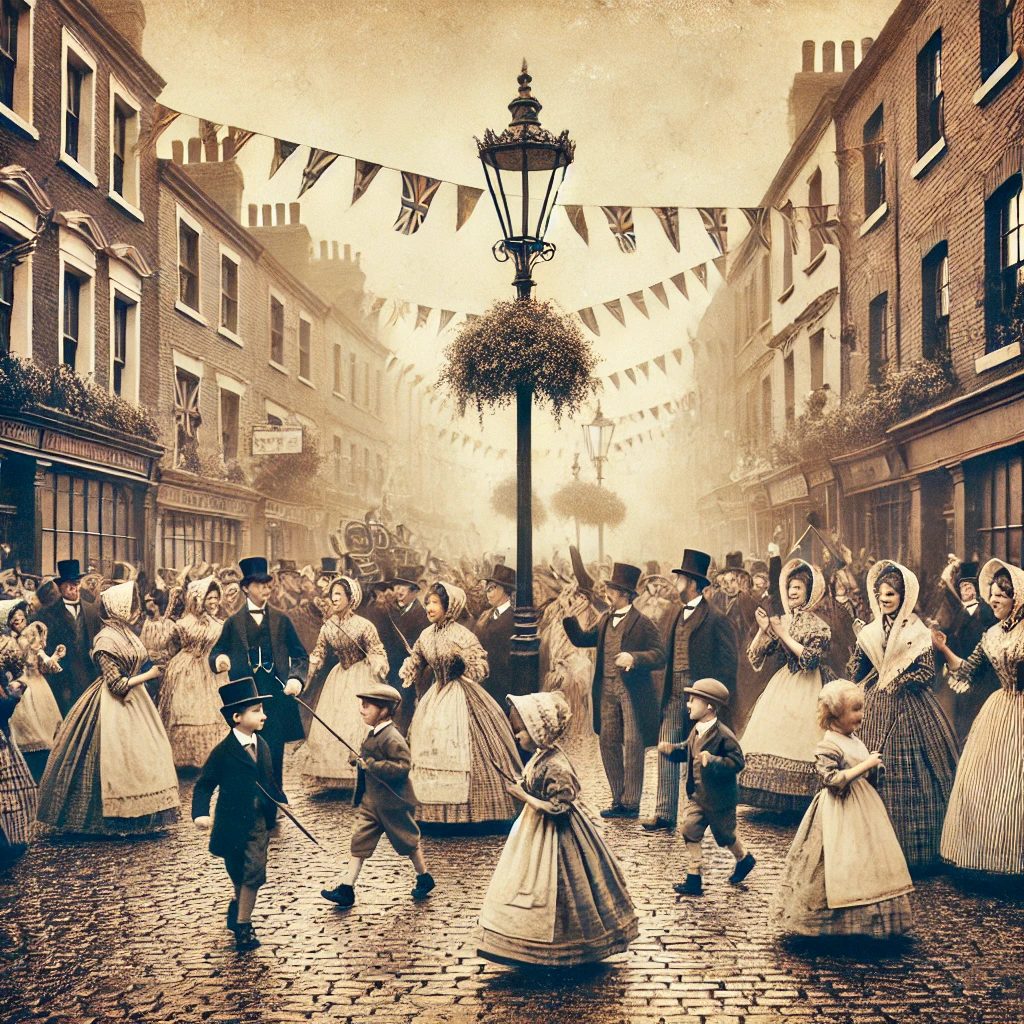
When celebrations got wild, Victorians called it “mafficking.” This term became popular during national celebrations, especially when the excitement went overboard.
77. Rumpus
A loud commotion or fuss was a “rumpus.” It was a catch-all term for noisy arguments, lively gatherings, or anything that disrupted the peace.
78. Drumsticks
Slang for legs, “drumsticks” was often used in a humorous or flirtatious context. Victorian men might jokingly refer to women’s legs this way.
79. Bufflehead
A “bufflehead” was a fool or simpleton, someone who wasn’t the sharpest tool in the shed. It was a playful insult, often used among friends.
80. Chivy
To “chivy” someone was to chase or harass them. Whether it was a game of tag or a serious pursuit, this word added a touch of urgency and fun.
81. Knocked Up
Before its modern meaning, “knocked up” meant to wake someone. It was used by servants and laborers who needed to get others out of bed early.
82. Cracked Crowns
A “cracked crown” referred to a head injury, often from a brawl or accident. This term was popular among rowdy pub-goers and street fighters.
83. Poked Up
If someone was embarrassed or humiliated, they were “poked up.” This slang was often used after a public mishap or a moment of awkwardness.
84. Doing the Bear
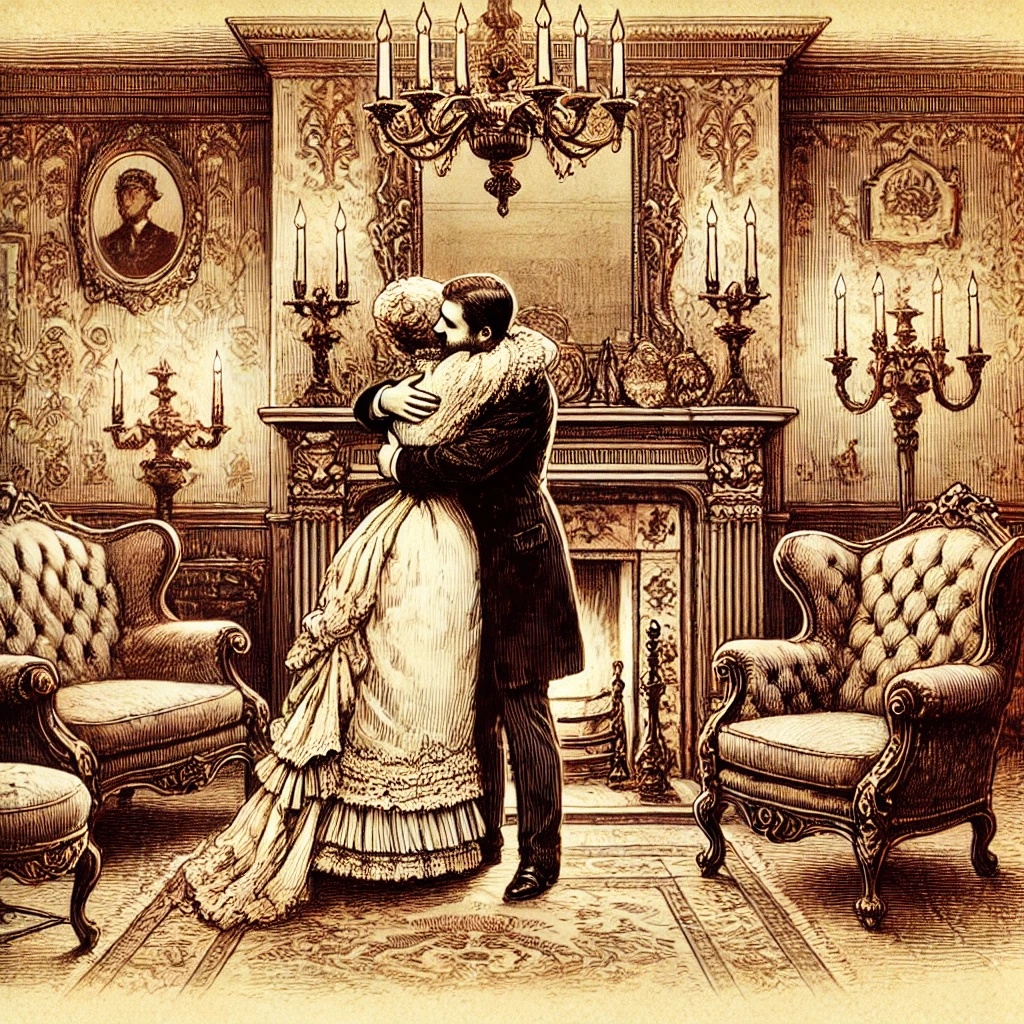
This funny phrase meant hugging or courting someone. Victorians weren’t shy about adding a touch of humor to romantic pursuits.
85. Cackle Tub
A “cackle tub” was a gossip mill or a gathering where people exchanged rumors. It was a term often used in jest to describe lively conversations.
86. Pot-Valiant
This term described someone who gained courage only after drinking. If someone boldly declared their love (or started a fight) after a few pints, they’d definitely be called “pot-valiant.”
Wrapping It All Up
Victorian slang is a treasure trove of creativity, humor, and wit. From the hilarious “poodle-faker” to the dramatic “got the morbs,” these phrases bring the past to life in the most delightful way. Why not try using some of these in your conversations? After all, who doesn’t want to call their best friend a “chuckaboo” or describe a wild night as “nanty narking”? Victorian slang might be old, but it’s definitely not outdated!

